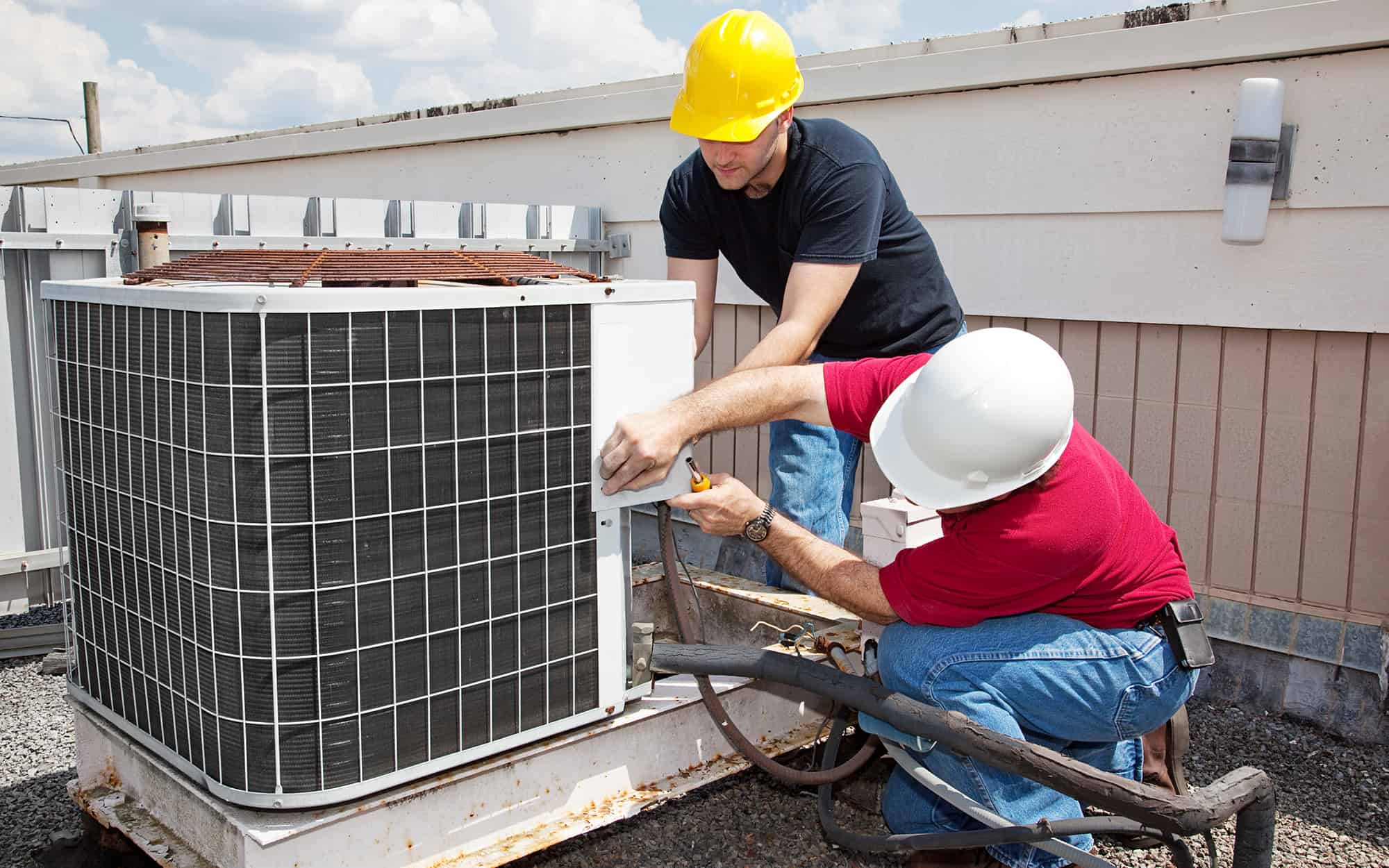
Unusual HVAC smells can lead to poor indoor air quality and a damaged air conditioning unit.
What’s That Smell Coming From My HVAC?
HVAC units release various odors, and while some are harmless, others indicate more significant problems. These are the five most common HVAC smells and what they mean:
HVAC Smells Musty
If your commercial HVAC smells musty or mildew-like, there’s likely mold buildup in your unit. Condensation forms when your air conditioning is running, and if the moisture can’t drain properly, it escapes into the ducts and creates mold.
A musty smell is an easy fix. A professional HVAC technician can find where the mold is growing and remove it without damaging any of your unit’s other parts.
While a musty smell in your HVAC isn’t an immediate danger, mold and mildew decrease your indoor air quality and can affect the health of those in your commercial building. It’s best to handle this sooner rather than later to avoid health complications.
Rotten Egg Smell From Heater Vents
If your HVAC smells like rotten eggs or sulfur, there’s a natural gas leak within your HVAC system. Natural gas is unscented, but most HVAC providers add sulfur to alert building occupants of a gas leak.
If you smell rotten eggs in your building and there aren’t any rotten eggs around, open the windows and evacuate the building. Gas leaks can lead to explosions and release greenhouse gases into the atmosphere.
An explosion can happen anywhere from within minutes to 24 hours of a gas leak, so it’s crucial to leave your building immediately.
Smoke Smell From Air Conditioner
Burning or smoke smells from air conditioners indicate something burning or overheating within your unit. It could be a frayed wire or damaged motor. In this scenario, turn off your AC unit immediately to prevent further burning.
Overheated systems can burn dust or debris, worsening the smell.
Contact an emergency HVAC technician to inspect your unit and repair the damage.
Gas Odor From Heating Ducts
Your commercial HVAC collects dust during the summer. When you turn on your furnace, all of that dust starts to burn, which can cause your HVAC to smell like gas. If the smell isn’t coming from your vents, there could be a leak within the unit or ducts.
In that case, hire an HVAC contractor to inspect and repair the gas leak.
Oil Smell In HVAC System
An oil smell in your HVAC system could indicate an oil leak. Oil leaks can be an easy fix, and you may need to tighten your HVAC tank’s fitting. If the smell continues after 24 hours, it’s time for a professional repair.
If there’s no visible oil inside your system, then the smell could come from a damaged oil burner. Clogging and improper installation of fuel pumps cause damage to your oil burner.
If you notice smoke or soot coming from your vents or hear noises from your ducts, contact an HVAC emergency technician immediately. Weird sounds, smoke, or ash could indicate a significant oil leak.
Why Does My Brand New Air Conditioner Smell?
You’ve just had your new AC installed—but why does it smell?
There are several reasons your brand new air conditioner smells:
- A building without AC collects mold and mildew, creating a musty smell. When you’ve just installed an AC unit, that mustiness starts flowing through the ductwork, spreading the odor. In this case, the smell will go away after a couple of days.
- When you have a new AC unit installed, your technician may connect it to existing wiring. A new unit plus old wires sometimes causes sparking. This means your building can’t support this AC system or you need to replace your wiring.
- Fungus and bacteria buildup creates a dirty sock smell. You might start to smell it when turning on your new AC. This scent can make you physically ill, so immediately reach out to your HVAC technician.
What Should I Do if My HVAC Smells?
Call a professional HVAC company, like React Industries, if your HVAC smells.
Our HVAC professionals have worked with every HVAC smell and know how to handle emergency HVAC situations. With over 35 years of experience, trust us to get rid of your HVAC smells and repair any damage within your unit.
Contact us today to learn more about our emergency HVAC services.